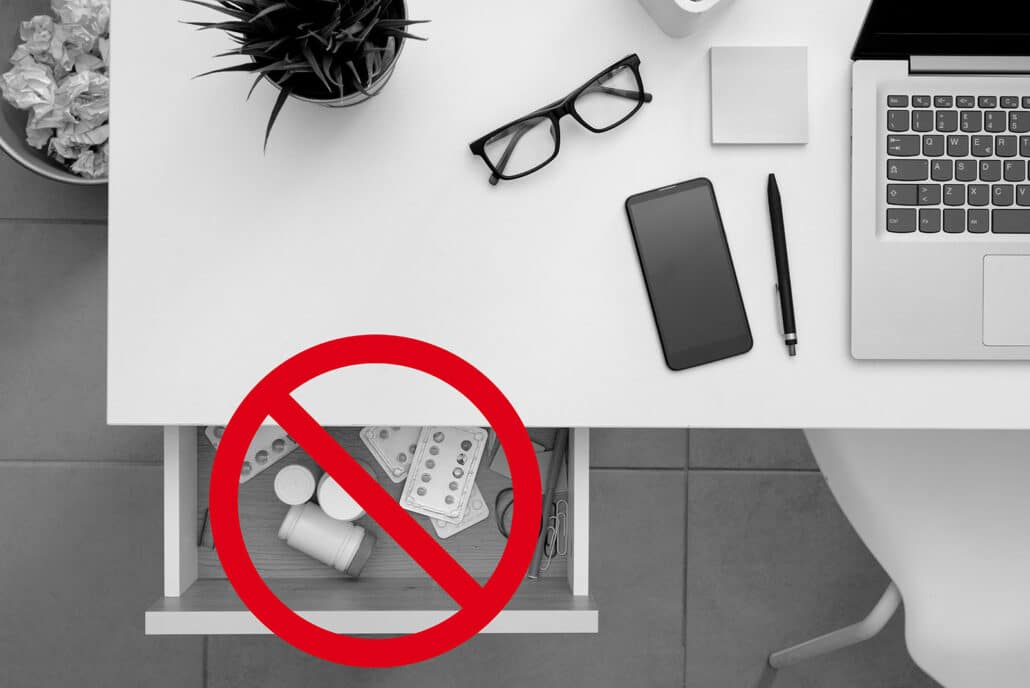Recovering from addiction shouldn’t be done alone, which is why sober living houses exist.
These houses serve as drug-free, supportive environments for people recovering from substance use disorder, helping them regain sobriety and rebuild their lives before moving back into their houses.
But like any other shared space, sober living houses often have a set of rules created to keep things running smoothly.
In this article, we’ll explain how these houses work, the rules you’ll likely encounter if you’re considering one, and the consequences of violating these rules.

Table of Contents
An Overview of How Sober Living Homes Work
The term ‘sober living houses’ refers to places where people recovering from addiction can reside until they regain their sobriety. They’re a form of recovery housing that helps patients transition from a treatment center to a normal life.
During their stay, these people must abide by the place’s rules and go through drug and alcohol testing regularly.
They’ll have communal spaces to share with others, like living areas and kitchens. They may also have roommates, depending on the number of people residing in the house at the moment.
Sober living houses can be either owned privately by people or by businesses and charities. Depending on the facilities of each place, the rent may go up or down. However, these houses don’t offer treatment of any kind, like inpatient and outpatient treatment, and they’re not supervised by medical staff.
They’re merely a place where people recovering can live without access to drugs until they become 100% sober. But to do that, they have to follow the rules.
For people who don’t need to stay at sober houses, sober coaches and companions are available to help them.
Origin of Sober Living Houses
Sober living houses started as far back as the 1930s, when Alcoholics Anonymous (AA) originated.
When it was first founded, people suffering from addiction could participate in the community and its 12-step program, getting the help they needed for recovery.
In the 1940s, AA members started realizing how hard it is for people recovering from substance use to find low-cost housing while still regaining sobriety. That’s why they started acquiring houses and making them available for recovering residents.
When the demand became too much for these houses, AA started requiring people to get sober before residing in the houses, which is where the concept of sober living houses came from.

How Much Do Sober Living Houses Cost?
To reside in a sober home, guests have to pay rent, which can be as low as $500 or as high as $5000, depending on the area, amenities offered, and size. Some houses offer meals, while others don’t, creating a price difference.
It’s worth noting that sober living houses aren’t covered by insurance because they don’t provide any medical services. Most houses don’t accept insurance, so the residents will handle all expenses.
The good news is that some sober houses, run by charities, are suitable for low-income residents.
What’s the Difference Between Sober Living Houses and Halfway Houses?
Halfway houses are often confused with sober living houses, but they have different rules and regulations. For example, halfway houses can’t accept patients unless they’ve completed their addiction recovery process at the rehab center.
They also can’t stay at the halfway house for more than 12 months, while sober living houses don’t have limitations on the length of stay.
Halfway houses are also often government-funded and may be court-mandated in some cases. Meanwhile, most sober living houses are privately run, which means they’re not supervised by any governmental organization.
The way they work, as long as guests pay rent and follow the rules, they can stay for as much as they want. Their stay isn’t cut short unless they violate the rules, like using drugs in the house.
Generally, both housing options offer transitional living environments for people recovering from drug abuse, but they work differently.

Sober Living House Rules
Staying in a sober living house comes with a set of rules that residents have to abide by. Not all guests necessarily go through addiction treatment before living in these houses, so it’s essential to ensure that no drugs will be used inside, hence the rules.
Here are sober living house rules that most houses go by:
No Drugs or Alcohol
It goes without saying that drug use and alcohol abuse are a no-no in sober living houses. To make sure guests aren’t using any drugs, they go through regular tests to make sure they’re still sober. Guests who break their sobriety aren’t allowed to stay at these houses.
No Stealing
All sober living houses will have strict rules in place to prevent stealing, even if it’s taking food from another guest without asking for permission. Guests who are found stealing are usually told to leave the house immediately.
No Destruction
Destroying anything in the house, even if it’s something as small as a vase, isn’t allowed. The same goes for bed sheets, curtains, etc.
Curfew Time and Sleeping in the House
Sober living houses gather people from all backgrounds and places, so to keep the place running successfully, there are some rules everyone has to adhere to, like curfew time. If guests go out, they should return before their curfew, and in the case of any delays or exceptions, they should communicate that beforehand.
Some sober living houses will lift the curfew for residents who are in good standing and follow the rules, especially if they’re employed.
Aside from curfew time, sleeping outside of the house is also not allowed. Sometimes, overnight passes are given to residents, depending on how well they follow the rules. Other than that, all residents must sleep at the house.
Attending All House Meetings
Sober living houses usually host group meetings every once in a while to promote communication. In these meetings, guests get to openly communicate with each other and give feedback about any issues concerning the house.
Attending those meetings is mandatory for all guests. Some houses also mandate 12-step meetings for the first few months of staying there.
Respecting Staff and Doing House Chores
Some sober living houses will assign chores to residents to keep them busy, especially if they don’t go out much. The chores are mostly basic and simple, like cleaning the common areas and keeping the personal spaces organized.
There may also be some rules related to the orderliness of the house, like taking the trash out every day and abstaining from throwing litter on the ground.
Aside from chores, residents in sober living houses are also obligated to respect the staff and treat them with kindness. The same goes for other guests and their visitors. Any disruptive behavior may risk the guest’s residence being cut short.
Paying Rent on Time
Sober living houses aren’t free; guests have to pay rent, and they have to pay it on time to avoid the risk of termination.

Additional Sober Living House Rules
While the previous rules are applied in all sober living houses, some rules may or may not be applied, depending on the house you’re considering.
Here’s a list of additional rules that you may find:
- No sexual activity between residents
- No verbal confrontation between the residents and the staff
- All prescription medications for the residents must be approved by the house manager and taken as prescribed
- Residents must report others who violate the rules if they witness it
- Residents must attend a minimum number of AA or NA meetings during the first few months of their stay at the sober living house
- Residents must stay in the house for a minimum period of time before leaving (Usually 90 days)
- For unusual job requirements, the residents must get approval from the house manager or the staff
- No overnight guests and no loitering outside
What Happens If Sober Living House Rules Aren’t Followed?
To support the mental health of guests and keep them comfortable, sober living houses have to make sure that everyone follows the rules.
So what happens if a resident doesn’t follow the house’s rules?
These houses often have systems in place to address rule violations. Residents who violate zero-tolerance rules, like drug or alcohol use, may be terminated immediately.
Meanwhile, residents who break basic rules, like forgetting to do chores, will often receive verbal warnings. If it gets too much, they’ll get probationary periods.

Final Thoughts
Sober living houses offer structure and accountability, which people recovering from addiction desperately need. The pressure of jumping straight back into everyday life may be overwhelming for a lot of people, so these houses serve as a transitional period.
While the rules may seem strict at first, they’re there for a reason: to keep the space comfortable and supportive for all residents while they’re working on regaining their sobriety.
Whether you’re looking into a sober living house for yourself or helping a loved one recovering from substance abuse, it’d be wise to educate yourself on how these houses work and the rules they set.
Published on: 2025-04-26
Updated on: 2025-04-28

